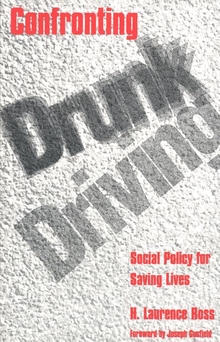Everyday Justice
WARNING
You are viewing an older version of the Yalebooks website. Please visit out new website with more updated information and a better user experience: https://www.yalebooks.com
Responsibility and the Individual in Japan and the United States
V. Lee Hamilton and Joseph Sanders
It is a fundamental human impulse to seek restitution or retribution when a wrong is done, yet individuals and societies assess responsibility and allocate punishment for wrongdoing in different ways. This book investigates how average citizens in the United States and Japan think about and judge various kinds of wrongdoing, how they determine who is responsible when things go wrong, and how they prefer to punish offenders.
Drawing on the results of surveys they conducted in Detroit, Michigan, and Yokohama and Kanazawa, Japan, the authors compare both individual and cultural reactions to wrongdoing. They find that decisions about justice are influenced by whether or not there seems to be a social relationship between the offender and victim: the American tendency is to see actors in isolation while the Japanese tendency is to see them in relation to others. The Japanese, who emphasize the importance of role obligations and social ties, mete out punishment with the goal of restoring the offender to the social network. Americans, who acknowledge fewer “ties that bind” and have firmer convictions that evil resides in individuals, punish wrongdoers by isolating them from the community. The authors explore the implications of “justice among friends” versus “justice towards strangers” as approaches to the righting of wrongs in modern society. Their findings will be of interest to students of social psychology, the sociology of law, and Japanese studies.
V. Lee Hamilton is professor of sociology at the University of Maryland. Joseph Sanders is professor of law at the University of Houston.
"An exceptional contribution to social psychology. The book is rich in insights about the processes involved in ascribing responsibility for wrongdoing and judging appropriate sanctions."—Neil Vidmar
"This is an excellent book in more ways than one. It demonstrates how and why cross-fertilization between disciplines can and should be conducted. It utilizes quite well the theoretical and methodological linkage a research design ought to have. Finally, and more importantly, it elucidates the importance of doing cross-cultural studies: they strengthen and refine theories, and they sharpen and clarify methodological issues and ambiguities."—Yung-mei Tsai, Social Science Quarterly
"Their argument compellingly pulls together strands of theory and commentary that have seemed in the past to be in opposition. It is the most powerful presentation of what seems to me to be the emerging consensus among comparative legal scholars . . . . This book provides the most definitive examination so far of the differences in the perceptions that inform legal behavior in Japan and the United States. It is also sensitive to real people in real social contexts. And it understands the interconnectedness of things, both among causal factors at different levels of social activity and between normative and behavioral dimensions of life."—David H. Bayley, Journal of Japanese Studies
"[An] innovative and challenging work."—John Bell, American Political Science Review
"An important and impressive book that presents a compelling theory to explain differences in individual and cultural reactions to wrongdoing in the United States and Japan. Using a combination of theory, research data, and existing literature, Hamilton and Sanders successfully illustrate a social structural model for understanding perceptions of responsibility and sanction. The model provides a useful conceptualization of legal culture, while at the same time raising significant and macroprocesses, and cross-cultural differences."—Donna K. Nagata, Social Justice Research
"[This] book treats responsibility and punishment as core aspects of legal culture and aims to show how social structure accounts for differences in legal culture, both at the individual and the national level. . . . While much comparative sociology makes only vague statements about perceived differences, Hamilton and Sanders present a comparative argument which is refreshingly exact."—David T. Johnson, Contemporary Sociology
Publication Date: September 10, 1994










